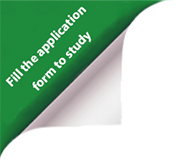The Covid-19 pandemic and its lockdowns significantly affected the way we spent our free time. Many more people began to go the countryside and spend time outside the city. Although it certainly had a beneficial effect on our physical and mental health, it also had its darker side; out in the countryside, in the forest, we are not alone. The increasing number of people walking in the countryside had an effect on all creatures living outside human settlements, all animals that fear us or treat us with respect as a potential danger. As a result, animals might have been changing the places they hunt, build nests and spend the day, the time they forage or go to sleep, all of which could have had a greater impact on their lives than we might think. Was this really happening and if so, how much did this change affect wildlife? A study by Olejarz et al. (2023), dealing with changing sleeping patterns of wild boar in connection with the Covid-19 pandemic, tries to answer this question. Wild boar became the studied species, which, although it lives mainly in the open countryside, is one of the less shy animals. For the purpose of research in Kostelec nad Černými lesy, scientists captured 63 wild pigs and fitted them with GPS telemetry collars with bio-loggers for recording movement. The collected data were subsequently compared with the records of the number of visitors in the local forests from installed counters. The authors conclude from the results that higher numbers of people in the countryside did not have a significant effect on the distance that the pigs travelled during the day, nor on the size of their home ranges. However, the increased activity of people had a major effect on the energy consumption of the wild boar, which rose by 41 per cent with higher numbers numbers of visitors compared to lower numbers of visitors. The reason was a change in the wild boar pigs' sleeping regime; on average, the pigs spent the same amount of time sleeping, but it was disrupted and they slept for shorter time intervals. The pigs' interrupted, lower-quality sleep disturbed by greater numbers of people in the wild during lockdowns led to higher stress levels, which caused increased energy expenditure.
Text: Oldřich Vojtěch
OLEJARZ, Astrid; FALTUSOVÁ, Monika; BÖRGER, Luca; GÜLDENPFENNIG, Justine; JARSKÝ, Vilém et al. Worse sleep and increased energy expenditure yet no movement changes in sub-urban wild boar experiencing an influx of human visitors (anthropulse) during the COVID-19 pandemic. Online. Science of The Total Environment. 2023, 879. ISSN 00489697

